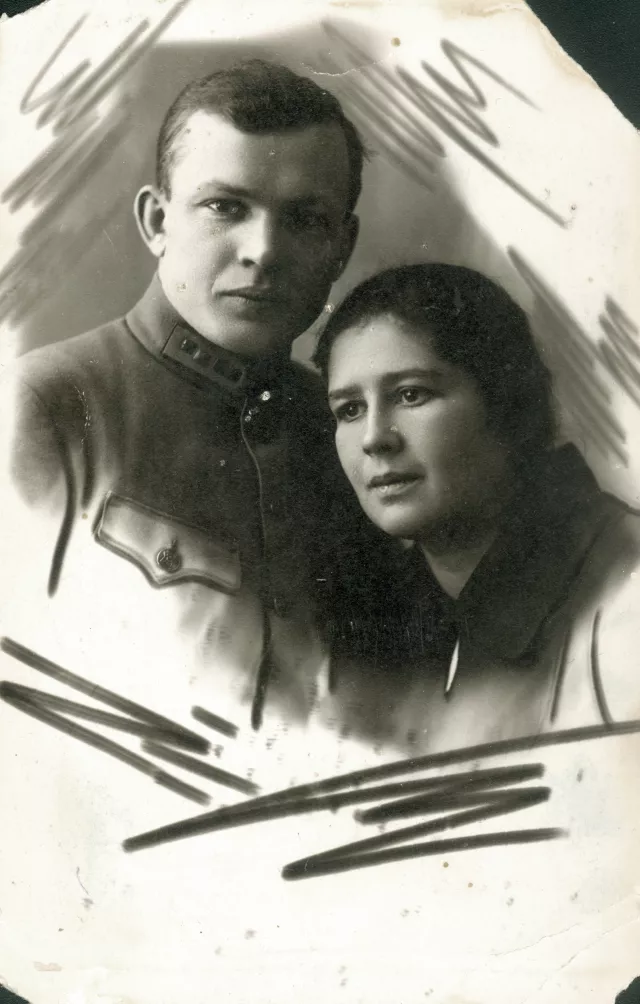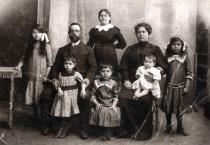Lyubov and Georgy Zaitsev
This is my aunt Lyubov, my mother's sister, with her husband Georgy Zaitsev.
The picture was taken in 1929 in Minsk on the occasion of their wedding.
My grandparents’ elder daughter, Liber-Esther, Lyubov by passport, was born in 1900. When she grew up, she left for Warsaw, where she nursed one of her aunt’s children, I don’t know exactly which aunt’s.
Then she came back and studied at the History Faculty of the Belarusian University and graduated from it in 1929.
She married Georgy Zaitsev, a Jew, born in 1902. He studied at the Belarusian University and, as an undergraduate, was sent to the Institute of Red Professorate in Moscow to study at the Faculty of Economics and graduated from it in 1931. Lyubov went to Moscow together with him.
After graduation Georgy was assigned to party work in the Caucasus. At first he was a political department head, then he was transferred to the position of First Secretary at the district committee of the Communist Party in a small town.
In 1937 he was arrested and in 1938 executed by shooting.
At that time arrests of people, who held high party positions, were very frequent. Usually they were groundlessly accused of anti-Soviet activity.
In 1937 Lyubov was also arrested; she worked as a teacher of Russian at that time.
They had two sons, born in 1929 and 1934.
When she was being driven in the mountains in an open truck to the prison, she managed to tear off a piece of her shirt and write a note, asking to help her children.
That note fell into good hands and was sent to the right address in the town, where they lived. Kind people took her children to her sisters in Leningrad. She was in prison until 1939, but the court wasn’t able to accuse her of anything, so she was released as there had been no crime committed.
She took her children from Leningrad and remained in the Caucasus before the war. When the war broke out and the Germans approached the Caucasus, she tried to get to the railroad on some cart, in order to get to Russia.
The husband of one of her sisters, Boris, helped her. He brought her to the train and sent her to evacuation to Kyrgyzstan, where all our family lived already.
After the war Lyubov worked as a teacher of Russian.
She died in 1965. She was buried at the Jewish cemetery.















